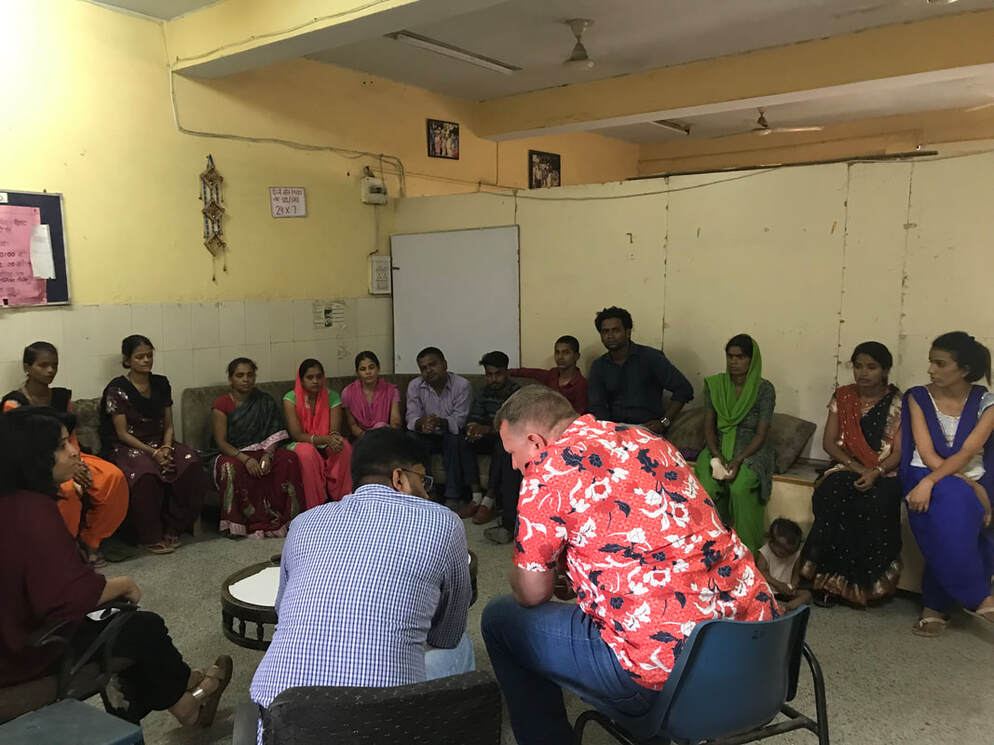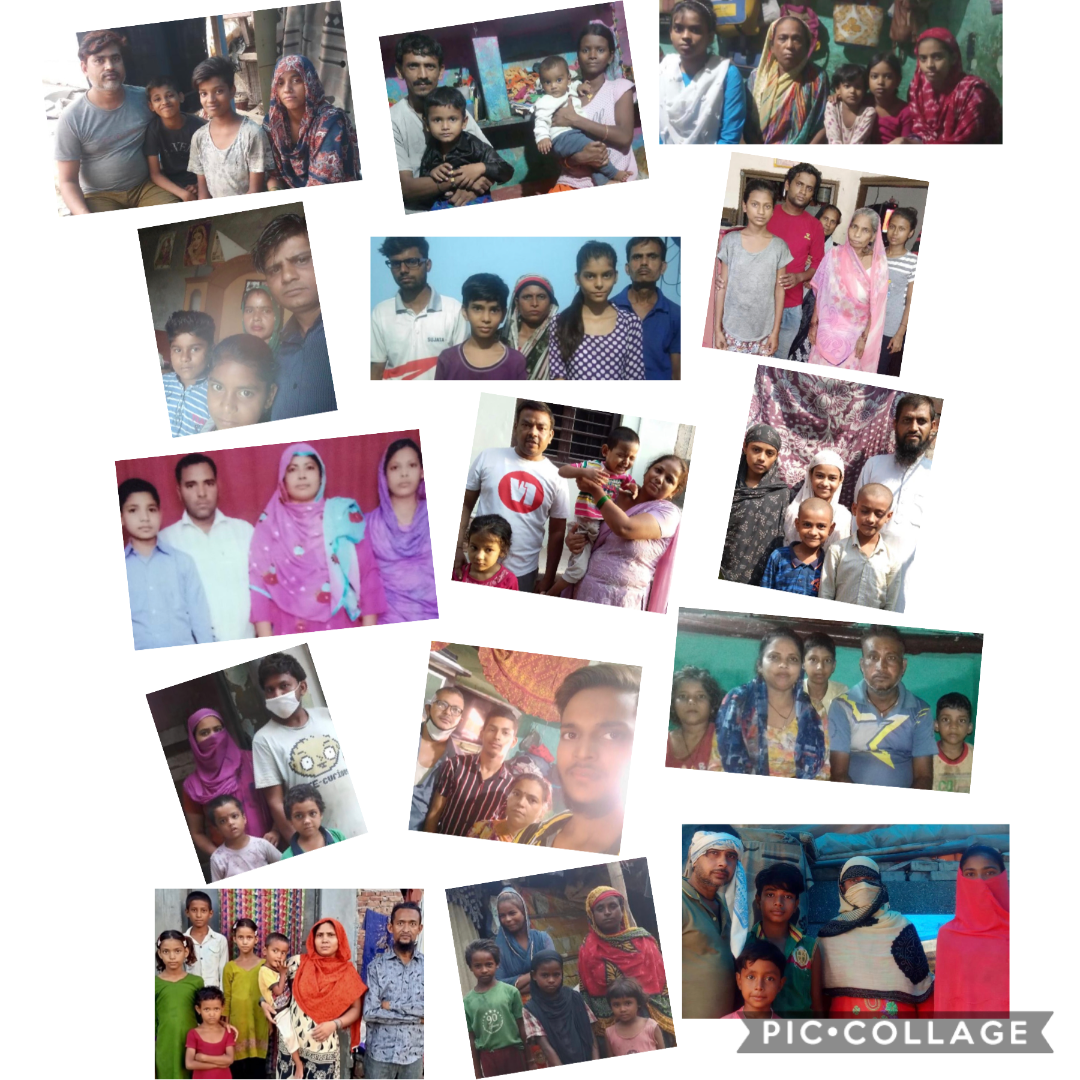INDIA - Project Unnati
In 2019, The Road to Parity entered a partnership with Indian NGO, Learning Links Foundation (LLF), to fight extreme poverty through micro-entrepreneurship.
Under the partnership, people in extreme poverty were given the opportunity to set up a business. Many of the beneficiaries were illiterate and had no prior business experience.
Strict criteria was agreed on who should be eligible for funding. An outreach team went into slum areas of Delhi to engage with the community and determine who may be suitable.
Using a micro-grant model, fledgling entrepreneurs were supported to buy the equipment and supplies needed to start trading. They were also given some basic training in marketing and managing money. The businesses were simple and usually street-based, selling daily, household items. Often, the tiny ventures would quickly become profitable, significantly increasing household income.
The first batch of funding was released at the end of 2019. In all, 90 enterprises have emerged in the poorest of areas. The partnership with LLF concluded in 2023, creating a lasting legacy of empowerment, financial independence and socio-economic inclusion.
Under the partnership, people in extreme poverty were given the opportunity to set up a business. Many of the beneficiaries were illiterate and had no prior business experience.
Strict criteria was agreed on who should be eligible for funding. An outreach team went into slum areas of Delhi to engage with the community and determine who may be suitable.
Using a micro-grant model, fledgling entrepreneurs were supported to buy the equipment and supplies needed to start trading. They were also given some basic training in marketing and managing money. The businesses were simple and usually street-based, selling daily, household items. Often, the tiny ventures would quickly become profitable, significantly increasing household income.
The first batch of funding was released at the end of 2019. In all, 90 enterprises have emerged in the poorest of areas. The partnership with LLF concluded in 2023, creating a lasting legacy of empowerment, financial independence and socio-economic inclusion.
Pictured from front right to left, The Road to Parity Founder, Jonathan Hill with Sudeep Dube and Rashmi Mishra from Learning Links Foundation, meeting potential entrepreneurs in India
Meet Phoola
 Phoola at her street stall in Delhi
Phoola at her street stall in Delhi
Phoola was among our first beneficiaries and the funding provided enabled her to set up a little street business in Delhi, selling boiled eggs.
The 28-year old can't read or write, and when we came across her in 2019, she was in a desperate situation, working as a domestic helper - and the main breadwinner for a family of six.
Despite this, she bravely came to a community centre in a Delhi slum and pitched her business idea. She was holding a baby that began urinating on the floor as she tried to explain her dream venture. Phoola calmly used the baby's ragged underwear to mop up the puddle created, nipped away to get cleaned up and resumed the meeting as if nothing had happened. She displayed unbelievable resolve.
We asked Phoola to describe in one word what being our first beneficiary meant to her. She said "Unnati," which translates to progress, as she believes her new enterprise will bring prosperity.
Our entrepreneurship programme in India was then called Project Unnati. Phoola's egg stall was just one of dozens of small businesses which rose out of the slums of Delhi.
The 28-year old can't read or write, and when we came across her in 2019, she was in a desperate situation, working as a domestic helper - and the main breadwinner for a family of six.
Despite this, she bravely came to a community centre in a Delhi slum and pitched her business idea. She was holding a baby that began urinating on the floor as she tried to explain her dream venture. Phoola calmly used the baby's ragged underwear to mop up the puddle created, nipped away to get cleaned up and resumed the meeting as if nothing had happened. She displayed unbelievable resolve.
We asked Phoola to describe in one word what being our first beneficiary meant to her. She said "Unnati," which translates to progress, as she believes her new enterprise will bring prosperity.
Our entrepreneurship programme in India was then called Project Unnati. Phoola's egg stall was just one of dozens of small businesses which rose out of the slums of Delhi.
UGANDA - Project Twekembe
In 2024, The Road to Parity started a new entrepreneur programme in Uganda, its second country of operation after India.
TRTP partnered with Canaan Children’s Development Initiative (CACDI), a non-profit organisation in Uganda's Luweero District, north of the capital, Kampala.
CACDI comes to the rescue of highly vulnerable children, such as orphans, disabled youngsters and those infected with HIV/AIDS to provide welfare and educational support. It also supports widows and victims of domestic violence. By coming together, the two organisations are helping mainly widows and domestic violence victims to start their own businesses.
Transforming their lives through entrepreneurship helps the women reduce their dependence on the perpetrators of abuse, while creating a safer environment for their children to thrive.
The first beneficiaries were asked to suggest a name for the programme that would resonate locally. Several mentioned the word Twekembe, meaning 'let's fight against poverty'. So, the initiative was called Project Twekembe.
TRTP partnered with Canaan Children’s Development Initiative (CACDI), a non-profit organisation in Uganda's Luweero District, north of the capital, Kampala.
CACDI comes to the rescue of highly vulnerable children, such as orphans, disabled youngsters and those infected with HIV/AIDS to provide welfare and educational support. It also supports widows and victims of domestic violence. By coming together, the two organisations are helping mainly widows and domestic violence victims to start their own businesses.
Transforming their lives through entrepreneurship helps the women reduce their dependence on the perpetrators of abuse, while creating a safer environment for their children to thrive.
The first beneficiaries were asked to suggest a name for the programme that would resonate locally. Several mentioned the word Twekembe, meaning 'let's fight against poverty'. So, the initiative was called Project Twekembe.
Getting extreme poverty on the map - programmes launched in India and Uganda

Helping one, benefitting many
While we provide a micro-grant to one person at a time to set up a business, the opportunity changes the fortunes of entire households, which has been as many as 11 people per house. Here are some of the families who are benefitting from a Project Unnati enterprise.


